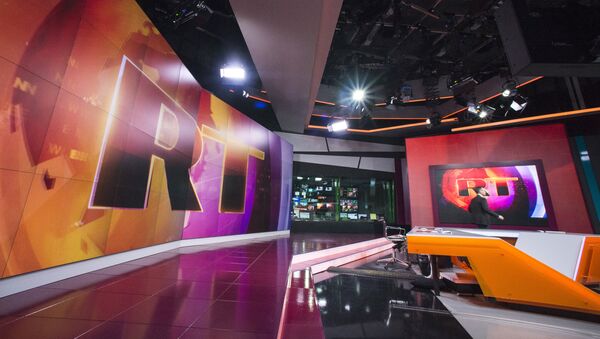"We have seen the published report written by Germany’s counterintelligence that contains a number of accusations against Russia and, apart from the allegations that Russian intelligence services have been actively conducting espionage on German soil, has a particularly big section dedicated to influence of Russian media on German public opinion. For example, the Sputnik news agency and the RT Deutsch TV channel are accused — I quote — ‘of disseminating propaganda and disinformation’".
"The statements were made in the report without any evidence or facts provided … The conclusions made in the report are however unambiguous", Zakharova said at a briefing.
The diplomat called such policies toward Russian media "unacceptable and violating the basic principles of media freedom and freedom of expression", and urged relevant international organizations, including the OSCE media freedom representative office, to take note.
Zakharova also mentioned that the report claimed that Russian media outlets "are disguised as independent media to hide the fact that they belong to the Russian state" and "exert subtle influence" on the German public, although neither RT nor Sputnik have made any attempt to conceal the source of their funding.
According to the spokeswoman, the report is "full of such peremptory accusations" and fully coincides with the opinion of the German Federation of Journalists, which in January urged national regulators supervising media activities to not issue a license for RT Deutsch.
The Russian Foreign Ministry therefore views the report as "another stage of inciting the atmosphere of hostility and toxicity around Russian media", Zakharova stated, stressing that this "aggressive attitude" was being fomented with the direct participation of German intelligence services.
Last week, the German Interior Ministry and the Federal Office for the Protection of the Constitution issued its annual report for 2018. The report accused Moscow of spying activities and "disseminating pro-Russian propaganda and disinformation" through its state-run media.
Russia media in Germany took a negative turn in January when the German Federation of Journalists claimed that RT Deutsch was a "tool for Kremlin propaganda" and called for denying a broadcaster license to the outlet.
The secretary of the Russian Union of Journalists, Timur Shafir, denounced his German colleagues' statements as "a blatant and unprincipled violation of the basic principles of the profession".


